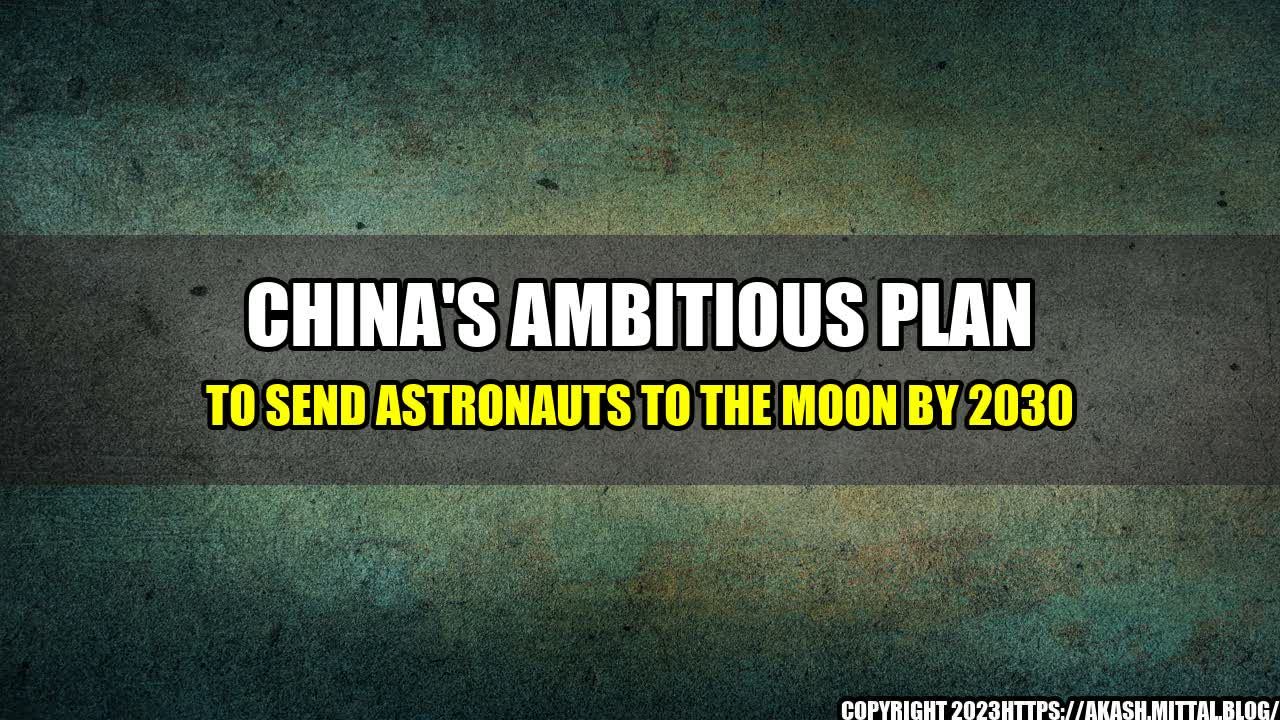Space exploration has always been a source of fascination for humanity. The very thought of exploring the unknown depths of space and discovering new galaxies, planets, and stars has always been a romantic notion, inspiring countless books, movies, and TV shows. Yet, the reality is that space exploration is one of the most demanding and technically challenging endeavors on earth. It requires a significant amount of resources, expertise, and most importantly, political will.
Currently, the US leads the way in space exploration, with NASA being the primary agency responsible for conducting space missions and exploring new worlds. However, China has been making significant strides in recent years towards becoming a major player in the space race. In fact, the country has set a bold target of sending astronauts to the moon by 2030, which could potentially challenge the US dominance in space exploration.
China's Plan to Send Astronauts to the Moon by 2030
China's plan to send astronauts to the moon is not a new one. The country has been steadily working towards this goal for over a decade, with the Chinese National Space Administration (CNSA) successfully launching several unmanned missions to the moon in recent years. These missions were primarily focused on mapping the moon's surface, collecting samples, and testing new technology and spacecraft.
However, China's ultimate goal is to send a crewed mission to the moon, which will require a significant amount of resources and infrastructure. To achieve this target, China has laid out a comprehensive plan that involves several stages:
- The first stage: Launching the Chang'e-5 probe, which will land on the moon's surface, collect samples, and return to earth. This mission is scheduled to take place in 2023.
- The second stage: Sending a manned mission to the moon's orbit, which will serve as a stepping stone towards a crewed landing on the moon. This mission is expected to take place in the 2030s.
- The third stage: Sending a crewed mission to the moon's surface, which will involve establishing a lunar base for long-term exploration and scientific research.
China's plan is certainly ambitious, and it will require a significant amount of investment and technological innovation. However, if successful, it could position China as a major player in the space race, and potentially give the country an edge over its competitors.
The Potential Impact of China's Moon Mission
If China succeeds in sending a crewed mission to the moon, it could have far-reaching implications for the future of space exploration. Here are some potential impacts:
- New Discoveries: A crewed mission to the moon could unlock new discoveries and insights into the moon's composition and history. It could also pave the way for future missions to other planets and celestial bodies.
- New Competitor: China's success could potentially challenge the US dominance in space exploration, and trigger a new space race between the two countries. This could lead to increased investment and innovation in the space sector, benefiting humanity as a whole.
- New Opportunities: A successful Chinese mission to the moon could open up new opportunities for collaboration and cooperation between China and other space-faring nations, paving the way for a more inclusive and global space community.
In conclusion, China's plan to send astronauts to the moon by 2030 is a bold and ambitious initiative that could potentially alter the landscape of space exploration. If successful, it could put China on par with the US in terms of space exploration capability, and open up new avenues for scientific discovery and innovation. However, it remains to be seen whether China can overcome the many challenges that lie ahead and achieve its goal.

Curated by Team Akash.Mittal.Blog
Share on Twitter Share on LinkedIn